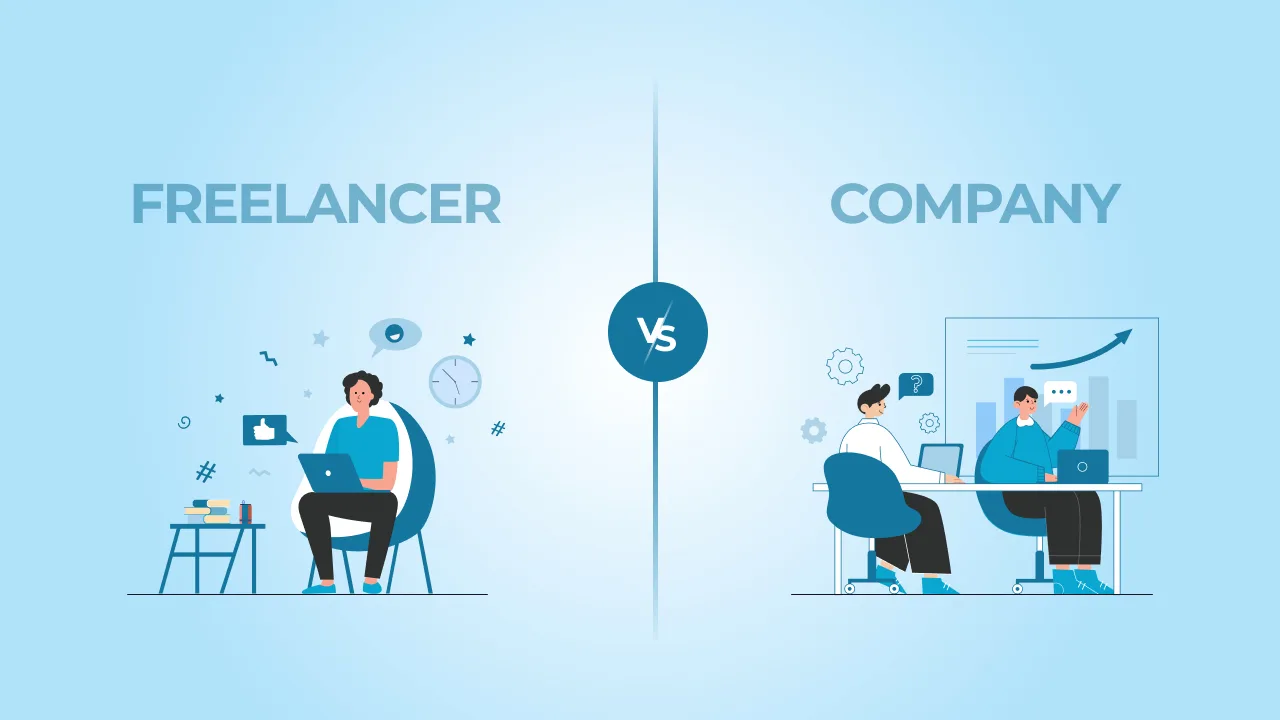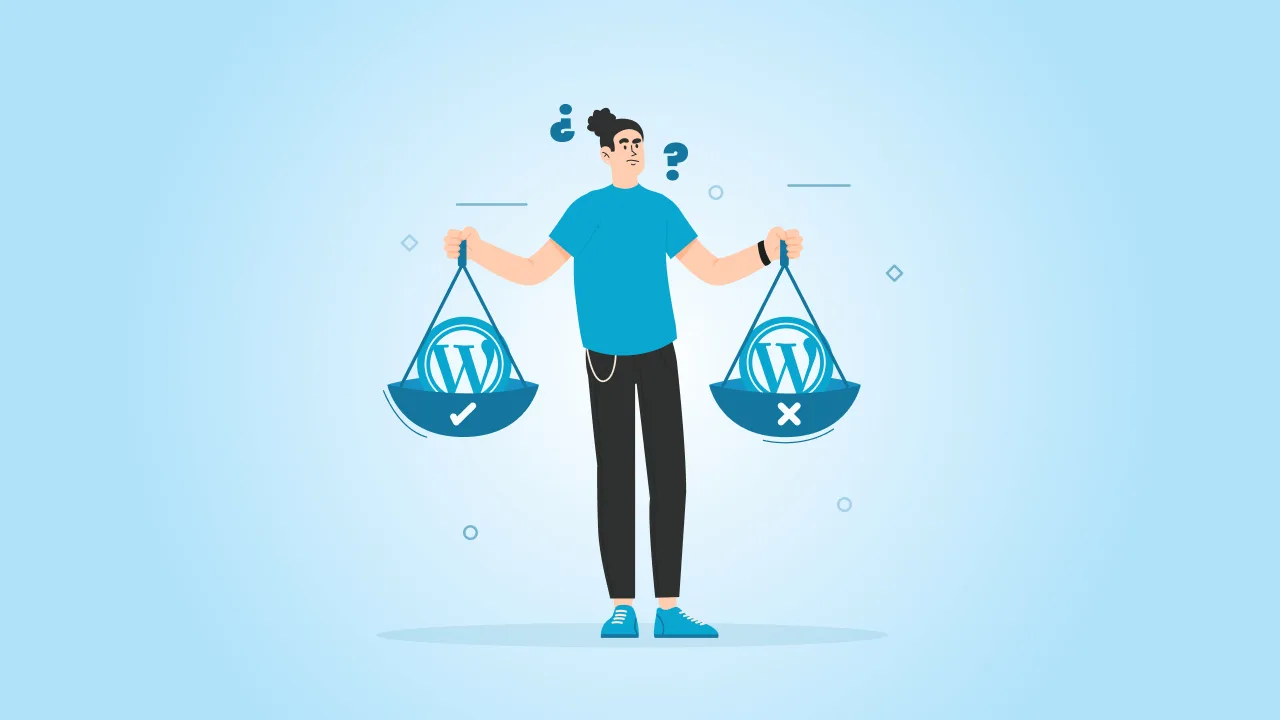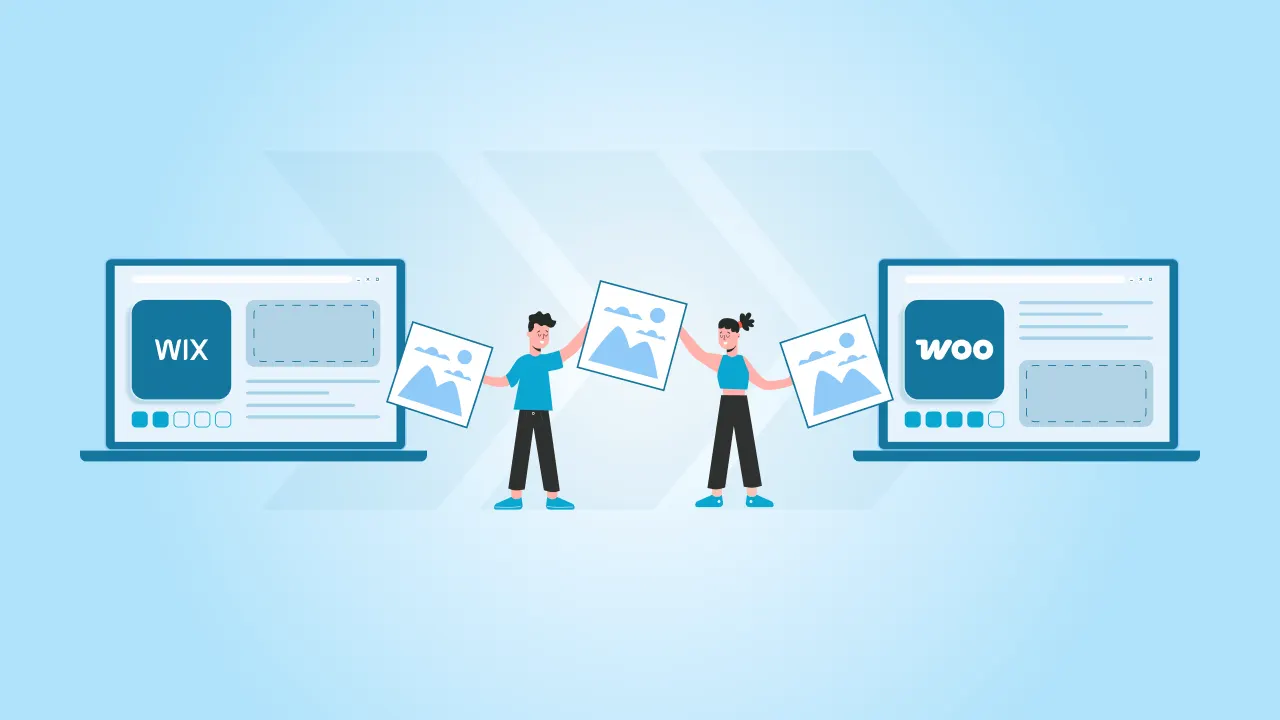Picture this: someone stumbles onto your website. They are interested, curious, and just a click away from becoming your next customer. But, within seconds, they are gone. What happened?
The truth is, having a website isn’t enough. Your website has to fit—it has to be designed with your goals and audience in mind. Think of it like setting up a shop. You wouldn’t sell jewelry in a hardware store, right? The type of website you choose is like the layout of your shop, the vibe that pulls people in, and the signs that guide them to exactly what they are looking for.
Every website has a unique purpose, from sleek portfolio sites to bustling e-commerce stores. The trick is finding the right one for your business. Pick the right type, and you have got a digital experience that draws people in and makes them want to stay. Pick the wrong one, and it’s like having a closed sign on your door.
At cmsMinds, we specialize in helping businesses make these choices confidently. Let’s dive in and help you find the perfect website to match your vision and goals!
Overview of Website Types
When it comes to building a website, there’s no one-size-fits-all solution. Different types of websites serve different purposes, and the right choice depends on your business goals and audience. Here’s a quick rundown of the main types of websites you will often see:
-
Business or Corporate Websites
These are the digital “home bases” for companies of all sizes. Typically focused on showcasing a company’s services, team, and values, these sites are designed to build trust and attract potential clients. They are all about making a great first impression and sharing what the company is all about.
-
E-commerce Sites
An e-commerce site is all about selling products or services online. With features like product catalogs, shopping carts, and secure checkout systems, these websites are designed to make online shopping easy for customers and efficient for the business.
-
Blogs and Content Sites
Blogs and content sites are perfect for individuals or businesses focused on sharing ideas, news, tutorials, or other valuable content. From personal blogs to full-fledged media websites, the focus here is on delivering fresh, engaging content to keep readers coming back.
-
Portfolio or Showcase Sites
These sites are made for creative professionals—think photographers, designers, artists, and writers—who need a space to show off their work. It’s all about creating a beautiful, easily navigable gallery that highlights the creator’s skills and style.
-
Membership Sites
Membership sites require users to sign up to access content, often offering exclusive information, forums, or tools for members. They’re common in education, health, fitness, and industry-specific communities where users are willing to pay for access to specialized resources.
-
Informational or Educational Websites
These sites are designed to provide in-depth knowledge on specific topics, often organized into a library or resource hub. Nonprofits, schools, and government organizations often use these to share information with the public in an organized, accessible way.
-
Community Forums or Social Sites
Community forums and social sites aim to connect people who share common interests. From discussion boards to social networking features, these websites are all about user interaction and building online communities.
Each type of website has its strengths and is designed to meet different needs. In the sections that follow, we’ll break down each one in more detail, covering who it’s best for and what key features make it successful.
Our team builds flexible, scalable websites designed to adapt to your needs.
Detailed Breakdown of Each Website Type

Here’s a look at some of the most popular website types, examples, key features, and insights on who they work best for.
1. Business or Corporate Websites
A corporate website represents a business online, providing information about its products, services, team, and values. It’s typically aimed at building brand authority and converting visitors into leads or clients.
Best For: Small businesses, large corporations, service providers, and any organization looking to establish a professional online presence.
Key Features:
- Homepage with business overview
- Services or product pages
- About Us and Contact sections
- Testimonials and case studies
- Calls-to-action for lead generation
- Integration with CRM systems
📌 Examples: IBM, Microsoft
💡 CMS Recommendations: WordPress (easy to manage and customize for businesses of all sizes), Joomla (for more complex corporate needs), or Drupal (for highly scalable corporate sites).
2. E-commerce Sites
An e-commerce site is designed for online sales, providing a complete online shopping experience with features for product browsing, checkout, and payment processing.
Best For: Retailers, wholesalers, and anyone looking to sell products or services online.
Key Features:
- Product pages with images, descriptions, and prices
- Shopping cart and secure checkout process
- User accounts and order tracking
- Payment gateway integration
- Reviews and ratings
- Inventory management
📌 Examples: Amazon, Shopify, Etsy
💡 CMS Recommendations: Shopify (for ease of use and e-commerce focus), WooCommerce on WordPress (for flexibility and customizability), or Magento (for larger, highly scalable online stores).
3. Blogs and Content Sites
These sites focus on sharing articles, guides, and other content, making them great for thought leadership, audience engagement, and SEO.
Best For: Individuals, influencers, media companies, and businesses that prioritize content marketing.
Key Features:
- Blog posts organized by category and tags
- Comment sections
- Social sharing options
- Subscription and newsletter sign-ups
- SEO tools
📌 Examples: Medium, TechCrunch, cmsMinds blog
💡 CMS Recommendations: WordPress (ideal for blogging with extensive themes and plugins), Ghost (minimalist, great for content-first sites), or HubSpot CMS (integrates well with marketing tools).
4. Portfolio or Showcase Sites
Portfolio sites are designed to display creative work, making them ideal for showcasing talents and past projects visually.
Best For: Photographers, designers, artists, architects, writers, and other creatives.
Key Features:
- Image and video galleries
- Case studies or project descriptions
- Contact forms for inquiries
- Testimonials or client logos
- Social media integration for portfolio sharing
📌 Examples: Behance, Dribbble, personal artist sites
💡 CMS Recommendations: WordPress with portfolio themes (flexibility for design and layout), Squarespace (easy-to-use, visually oriented), or Wix (for easy customization and creativity).
5. Membership Sites
Membership sites require users to register, often paid, for exclusive access to content or tools, fostering a community and steady revenue stream.
Best For: Online course providers, industry groups, health and fitness coaches, and content creators.
Key Features:
- User registration and membership management
- Exclusive content sections
- Payment processing for membership fees
- Community features like forums or chat
- Regular content updates
📌 Examples: LinkedIn Learning, MasterClass, Patreon
💡 CMS Recommendations: WordPress with a membership plugin like MemberPress, Kajabi (all-in-one for memberships and courses), or Teachable (if focused on online courses).
6. Informational or Educational Websites
Designed to provide valuable information, often organized by topic, to educate or inform users.
Best For: Nonprofits, government agencies, educational institutions, and industry publications.
Key Features:
- Resource libraries or knowledge hubs
- Searchable content databases
- Downloadable guides or reports
- Event calendars
- Interactive features like quizzes or surveys
📌 Examples: Wikipedia, Khan Academy, CDC.gov
💡 CMS Recommendations: WordPress or Drupal (for flexible content management), Joomla (good for organized educational sites), or Moodle (if educational content is the focus).
7. Community Forums or Social Sites
These sites create an online space for people to connect, share ideas, and discuss topics of mutual interest.
Best For: Niche communities, support groups, fan bases, and anyone looking to build a social presence around a common interest.
Key Features:
- User profiles and account creation
- Discussion boards and chat features
- Like, comment, and share options
- Moderation tools
- Groups or sub-forums for specific topics
📌 Examples: Reddit, Stack Overflow, Discord communities
💡 CMS Recommendations: Discourse (dedicated forum platform), BuddyPress on WordPress (to add social features), or Vanilla Forums (for simple forum setups).
Factors to Consider When Choosing a Website Type

Choosing the right website type goes beyond just picking a design or layout. It’s about aligning your website with your business goals, target audience, content needs, and available resources. Here’s a breakdown of the key factors to keep in mind:
1. Business Goals
- Define Your Purpose: Ask yourself what you want your website to accomplish. Are you aiming to sell products directly online, generate leads, share valuable content, or build a community?
- Goal-Driven Choices: If your goal is direct sales, an e-commerce site is essential. For brand-building and trust, a corporate or portfolio site might be best. If lead generation is a focus, a business website with strong calls-to-action and lead capture forms will be key.
- Examples: A consulting firm focused on lead generation might prioritize a corporate site with contact forms, testimonials, and service pages, while a fitness coach aiming for membership revenue would lean toward a membership site to deliver exclusive content.
2. Target Audience
- Understand Audience Preferences: Your audience’s behavior and expectations should guide your website’s structure and features. A younger, tech-savvy audience might prefer a visually dynamic site with interactive features, while a more professional audience may appreciate a straightforward, information-rich experience.
- Audience-Based Design: For a younger audience, consider an interactive blog or community site that encourages engagement. If your audience is primarily seeking information (e.g., an educational audience), focus on content organization and easy navigation.
- Examples: A photography portfolio aimed at art buyers should be highly visual and intuitive, while a healthcare resource site for patients might prioritize clarity, accessibility, and simple navigation.
3. Content Strategy
- Frequency and Type of Content: Determine how often you’ll need to update content. Websites with frequent updates, like blogs or e-commerce sites, require robust content management systems. Meanwhile, static corporate websites may not need as many updates and can focus on stable, high-quality information.
- Content Variety: Consider whether you’ll need support for multiple content types—text, images, videos, or even interactive elements. A portfolio site, for instance, may need advanced gallery options, while a blog requires seamless text and multimedia integration.
- Examples: A tech blog that posts daily updates will need a CMS that supports easy content scheduling and editing, like WordPress. On the other hand, an informational site that rarely changes content (like a government page) may prioritize stable content presentation over frequent updates.
4. Budget and Resources
- Initial Investment and Maintenance: Different website types come with different cost structures. E-commerce and membership sites tend to require higher upfront investments, as well as ongoing maintenance for security, updates, and customer support.
- Staffing Considerations: Consider if you have a dedicated team to manage the site. E-commerce sites, for instance, may require someone to manage orders and inventory, while a blog may need consistent content creation.
- Examples: A small business might opt for a simple WordPress site with a lead capture form to save costs, while a retail business with a larger budget could invest in a custom Magento e-commerce site for greater flexibility.
5. Scalability
- Plan for Growth: Consider your business’s growth potential and how the website will need to scale. For businesses expecting rapid growth or an expanding product line, scalability is essential. E-commerce and membership sites, in particular, often require more robust back-end systems that can handle a large number of users and transactions.
- Future Needs: Think about potential future features you might want, like a blog, member accounts, or a community forum. Choosing a CMS that supports add-ons or expansion can make scaling easier.
- Examples: A startup might start with a basic website to showcase services but choose a CMS like WordPress with plugins to add features as they grow, whereas a large e-commerce business would need a scalable platform like Magento or Shopify Plus from the beginning.
6. Technical Requirements
- Identify Necessary Features: Different websites come with different technical needs. E-commerce sites require payment processing and data security, while portfolio sites may need multimedia support for high-quality visuals.
- Consider CMS Compatibility: Some best CMS platforms are better suited for specific technical needs. For instance, if your site requires a built-in forum or social features, WordPress with BuddyPress might work well, whereas a high-volume online store might perform better on Shopify or Magento, which offer more integrated e-commerce tools.
- Examples: An e-commerce site would prioritize payment gateway integrations and secure user accounts, while an educational site might focus on integrating e-learning tools or video support.
How a CMS Can Help You Build Your Ideal Website
Building the right website is about more than just design; it’s about having the right tools to manage and grow it over time. That’s where a Content Management System (CMS) comes in. A good CMS makes it easy to create, organize, and update content on your website, even if you don’t have a technical background. The right CMS can streamline your workflow, support new features as your business grows, and ensure that your site stays flexible to meet changing needs.
Different CMS platforms offer unique strengths depending on the type of website you’re building. Here’s a look at some of the most popular CMS options and how each can help you bring your ideal website to life, tailored specifically for your business goals and audience.
1. WordPress
- Best For: Blogs, content-driven websites, small-to-medium business sites, and portfolio websites.
- Strengths: WordPress is the world’s most popular CMS due to its flexibility and extensive plugin library. It’s highly customizable, making it ideal for a range of websites, from blogs to business sites. With thousands of themes and plugins, WordPress is beginner-friendly but robust enough for complex needs.
- Growth and Flexibility: WordPress can handle everything from small personal blogs to large content sites, with plugins that add advanced functionality as you grow. For example, WooCommerce can transform WordPress into a powerful e-commerce platform.
- Examples: Ideal for companies or individuals focusing on regular content updates, media-rich sites, and SEO-driven blogging strategies.
2. Shopify
- Best For: Small-to-medium e-commerce sites, especially for businesses wanting a fast setup and easy management.
- Strengths: Shopify is known for its user-friendly interface and comprehensive e-commerce tools. With built-in payment processing, inventory management, and mobile-friendly themes, it’s a streamlined choice for businesses that need an efficient online store without the complexity of Magento.
- Growth and Flexibility: Shopify’s app store allows for customization and growth as your business expands. Options like Shopify Plus also offer advanced features for businesses needing enterprise-grade e-commerce capabilities.
- Examples: Ideal for small businesses, independent sellers, or mid-sized brands that want a reliable, easy-to-manage e-commerce solution.
3. Drupal
- Best For: Complex corporate sites, government and educational sites, membership and community sites.
- Strengths: Drupal is a powerful, highly flexible CMS designed for large, complex sites with specific needs. Its extensive customization options make it ideal for organizations needing robust security, scalability, and advanced functionality.
- Growth and Flexibility: Drupal supports multi-language capabilities, complex workflows, and integrations with various systems, making it highly scalable. It’s a good choice for businesses with technical teams that can manage and maintain its more complex features.
- Examples: Ideal for large corporations, government agencies, and educational institutions that need advanced permissions, strong security, and flexible content management options.
4. Magento (Now Adobe Commerce)
- Best For: E-commerce sites, especially large-scale, complex online stores with high volumes of products.
- Strengths: Magento is built for serious e-commerce operations, offering robust tools for inventory management, multi-store capabilities, and a highly customizable shopping experience. It’s a preferred CMS for businesses needing advanced e-commerce features, especially for large catalogs.
- Growth and Flexibility: Magento is scalable for large stores and can handle heavy traffic, making it suitable for brands planning for rapid growth or seasonal traffic surges. Extensions enable features like advanced product filtering, custom checkout processes, and even loyalty programs.
- Examples: Ideal for large retailers and brands with complex e-commerce needs, such as managing multiple stores or complex product categories.
5. WebFlow
- Best For: Creative professionals, designers, and small to medium businesses looking for a visually appealing, responsive website without needing extensive coding skills.
- Strengths: WebFlow combines the flexibility of a visual design tool with the functionality of a CMS, making it easy for designers to create highly customizable, visually rich websites. It supports complex animations and interactions while allowing for extensive visual control, making it popular among designers who want to turn unique visions into reality without heavy code.
- Growth and Flexibility: WebFlow is suitable for scalable design and content management, with features like dynamic content, customizable CMS collections, and integration with third-party tools. Its flexibility allows businesses to start small and add complex designs or animations as they grow, making it a good choice for agencies or businesses planning for visually intensive sites.
- Examples: Ideal for portfolios, agency websites, blogs, and smaller e-commerce sites needing visually engaging, interactive experiences.
Conclusion
Choosing the right type of website is a vital decision that depends on your business goals, target audience, content needs, and long-term vision. Whether you are building a sleek corporate site, a dynamic e-commerce platform, a vibrant community forum, or a membership-driven hub, each type of website has its own strengths and challenges. Understanding these options and selecting the right CMS can set your website up for success, making it easier to manage, update, and grow over time.
At cmsMinds, we are here to help you make these important choices with confidence. Our team has deep experience in designing, building, and customizing websites across a wide range of industries and platforms. If you are ready to start, or if you need expert advice on choosing, designing, or launching the perfect website for your business, don’t hesitate to reach out. Let’s work together to create a website that meets your needs today and grows with you tomorrow.
We will help you pick the perfect platform to support your business’s growth. Schedule a Call with Our CMS Specialists.





